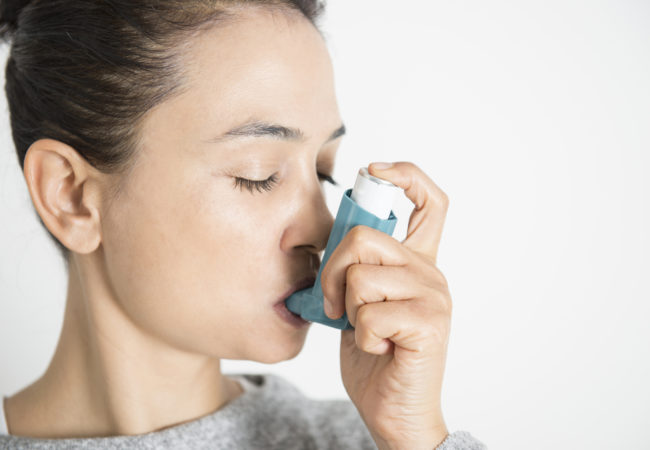Coughing is an automatic reflex to clear and protect your airways. Many different things can irritate our airways and cause us to cough. This can be from mucus from a cold or chest infection, smoke, chemicals and food getting stuck in our oesophagus or “going down the wrong way”.
Cough is also a symptom of chronic chest conditions such as asthma and COPD (Chronic Obstructive Pulmonary Disease). Cough is also a symptom of serious conditions including lung cancer.
What causes a cough?
As the causes are so vast and reflect a variety of causes it is important to know what symptoms are not to be ignored and when you should see your doctor for an assessment.
The simplest way to breakdown the causes of cough is related to the duration of symptoms.

Acute causes of cough; typically lasting up to three weeks.
Upper Respiratory Infections (URTIs)
80-90% of URTIs are caused by viral infections. Cough is associated with the typical symptoms of a cold including; blocked/ runny nose, sore throat, fever, headache and fatigue.
Lower Respiratory Infections
LRTI’s are less common than URTI’s and more serious. The can follow URTIs when “a cold settles on your chest” or the can occur independently.
LRTI’s can be caused by viruses, bacteria or fungus.
Infective flare-ups (exacerbations) of chronic respiratory conditions like asthma or COPD can also be causes, that is also a feature of asthma and COPD, to become worst.
Chronic causes of cough
In this category, the cough tends to last over 3 weeks.
Asthma and COPD.
In both these chronic respiratory conditions have the same three symptoms; cough, wheeze and shortness of the breath. The key difference between them is that asthma is reversible, i.e the symptoms can resolve when the trigger is removed and treatment of the “asthma attack “ is effective.
COPD, on the other hand, is a progressive disease and cannot be reversed. COPD is in most cases caused by smoking.

Acid Reflux / Reflux
This is a common, non-respiratory cause of cough. Gastro-oesophageal reflux disease causes acid to reflux up from the stomach into the oesophagus which can also overspill into the airways and cause cough.
Post-nasal drip
This is another common and non-respiratory cause of cough. It occurs when mucus drips from the nose into the back of your throat and causes you to cough. There are many triggers that cause your nose to produce more mucus, including allergies, infection and nasal polyps.
Irritants
Chemical irritant of the airways can also lead you to cough on a chronic basis in the absence of infection. Classic causes are; cigarette smoke, chemical fumes. It is especially common in people working in factories or chemicals when they are exposed to airborne chemical irritants on a daily basis.
Medications
Certain medications can also cause a chronic cough. Blood pressure medications, Angiotensin-converting enzyme inhibiting mediations are a classic cause.
Red Flags
Cough can also be a symptom of more serious respiratory diseases like lung cancer. Here is a list of the red flag symptoms that need a doctor’s assessment. If you or your family have any of these symptoms please see your doctor.
- Coughing up blood
- Chest pain
- Shortness of breath
- Weight loss
- Fever
- Night sweats
- Persistent over 3 weeks
- Not responding to treatment
Treatments
The treatment of the cough is dependant on the underlying cause.
In most viral infections the cough will clear up by itself. Antibiotics are only effective against bacterial infections. As most respiratory infections are caused by viruses, simple treatments can help to support your body to fight it naturally. These treatments include;
- Paracetamol
- Ibuprofen
- Honey and lemon
- Sleep
- Healthy diet

Asthma and COPD need more specialised treatment involving reliever and preventer inhalers to help protect against exacerbations and keep the symptoms stable. If infective exacerbations do occur a combination of antibiotics and oral steroids may be needed.
Post-nasal drip may require a steroid nasal spray to be prescribed by your doctor.
Reflux cough will be treated by treating the underlying cause of gastro- oesophagal reflux.
In all cases of cough, maintaining your general health is key;
- Stop smoking
- Avoid triggers that you are sensitive to for example chemicals or irritants
- Sleep
- Rest exercise
- Healthy diet
In general, cough is a very common symptom that could be part of a wide range of underlying medical problems. If you or your family have a cough persisting over 3 weeks, not responding to treatment or any of the red flag symptoms described above, please see your doctor ASAP.

Dr Jane Leonard is a fully qualified GP and Cosmetic doctor, graduating from the University of Manchester. She also has a first class honours degree in anatomical sciences, in which she focused her studies on the anatomy of the face, head and neck.
She completed her aesthetic training on Harley Street following a stint at The Alfred Hospital Medical Research Centre, in Melbourne, Australia. Her work in Dermatology research has been published in the prestigious Australasian Journal of Dermatology.
Almost a decade of aesthetic treatment experience, Dr Leonard has been nominated for the Cosmetic Doctor of the Year in the prestigious Safety in Beauty Diamond Awards.















